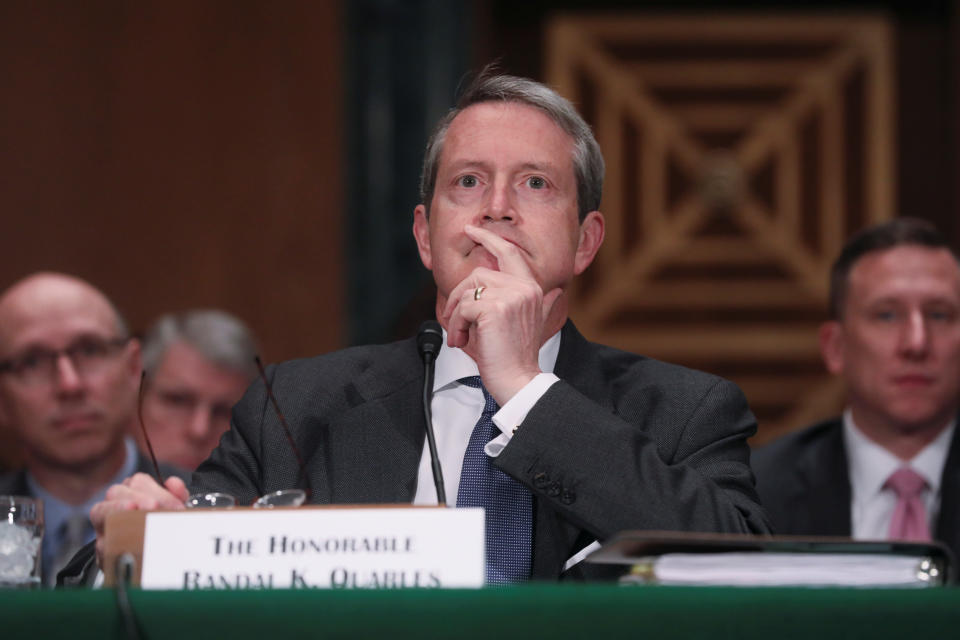Fed Vice Chairman: Interest rates in 'good place' despite 'notable risks'

Federal Reserve Vice Chairman Randal Quarles said Thursday night that policymakers are well-positioned with interest rates where they are, but said the central bank still needs to watch “notable risks” like the Coronavirus outbreak and weak investment.
In a speech in New York, Quarles said that the Coronavirus “threatens significant economic disruption” on China and its neighbors, but added that the effect on the U.S. is still unknown.
“It is too early to say what the full economic effect of the outbreak will be, and this situation will require careful monitoring,” Quarles said.
On the broader economic outlook, Quarles said he remains “optimistic” about the U.S. and specifically shrugged off low readings on inflation. The Fed’s preferred measure of inflation, core personal consumption expenditures, came in at 1.6% for December, well below the Fed’s target of 2%.
Quarles said the deviation “does not worry me much,” adding that trimmed price indexes suggest that inflation will return to its target in the medium term.
Quarles added that he sees “additional slack” in the labor market, supporting his view that the Fed can leave rates where they are as job gains continue on pace.
Stress Tests and Surcharges
As the vice chairman of supervision, Quarles also provided some updates on the Fed’s thinking on regulatory policy.
Quarles suggested that the Fed could make tweaks to the regulatory framework to improve liquidity. One proposal concerns internal stress tests carried out by the banks.
Quarles said the framework should allow banks to assume that firms would be able to access the discount window during times of stress. The discount window is provided by the Fed as a way to provide fully collateralized loans to a bank in need.
Such a change would, in theory, improve the incentives for firms to actually use the discount window if they needed to. Quarles insisted that changing the assumptions in the stress test would not lead to a decrease in bank liquidity buffers.
“If firms were to include the discount window in their plans for how they will weather a stress scenario, they would also need to demonstrate to supervisors that they are prepared to use it to ensure that their plans are credible,” Quarles said.
But banks have historically attached a negative stigma to using the discount window. Publicly doing so may send a signal to investors and depositors that the firm is in distress, possibly triggering a run on the bank.
Quarles also floated the idea of tweaking the capital surcharge on global systemically important banks, which some banks have criticized as a constraint on liquidity near year-end close. Quarles insisted that a change would not “alter the stringency” of the surcharge but said early analysis suggests that changes to the methodology behind applying it “may be helpful.”
Brian Cheung is a reporter covering the banking industry and the intersection of finance and policy for Yahoo Finance. You can follow him on Twitter @bcheungz.
Fed to pare back 'Volcker rule' to expand bank investment in venture capital, securitized loans
Powell: 'Hard to say' if balance sheet expansion is affecting risk assets
Fed Chair Powell: Coronavirus will affect Chinese economy 'in the short term'
Fed holds rates steady in first meeting of 2020 as economy extends expansion
'This is the new normal': California businesses pessimistic on phase 2 deal
Read the latest financial and business news from Yahoo Finance
Follow Yahoo Finance on Twitter, Facebook, Instagram, Flipboard, SmartNews, LinkedIn, YouTube, and reddit.
